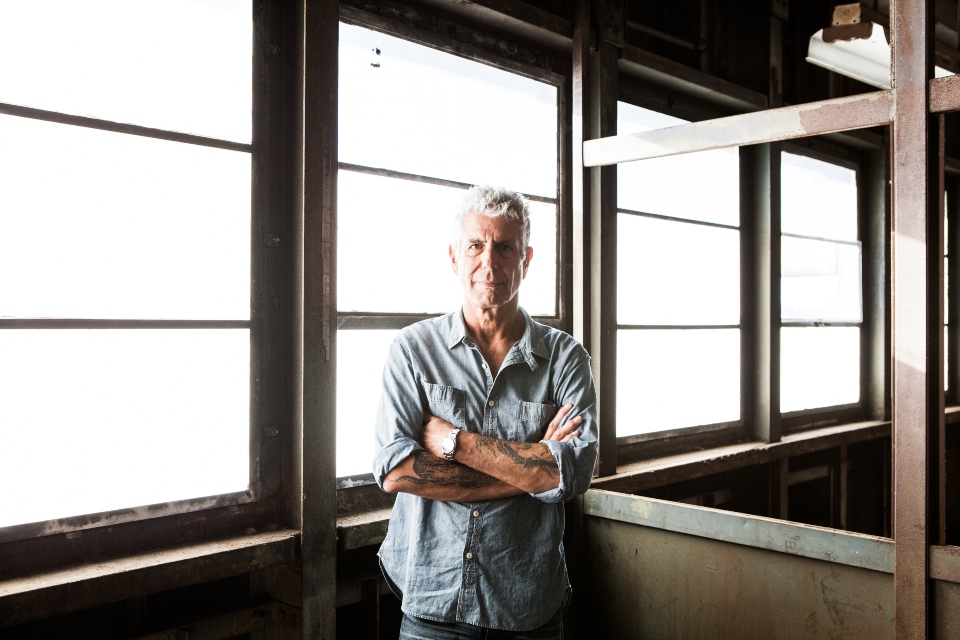
“Traveling is not always pleasant” once said Anthony Bourdain, a man who has spent 15 years of his life traveling to the most unexpected and unexpected corners of the world, unfolding stories about food in front of the camera, whether it be a restaurant in West Virginia or a local street snack in the Republic of the Congo.
At a time when social media is fueling conceited voices, the chef and TV presenter offered an ambiguity that managed to be reassuring. Simply put, through his shows, he offered a world full of variety, complexity, and sometimes vice.
There is always a place in American culture a man (rarely not a man) who succeeds in his own way, one who, despite his self-destructive tendencies, climbs the mountain of success without observing any known rules.
Anthony Bourdain, a former crack user with a weakness for cocaine and a longtime New York kitchen worker who moved from haute cuisine to cheap food, was also “ranked” in this celebrity category. He recorded these experiences with a Spartan gonzo writing in “Kitchen Confidential” a bestseller that made him more or less famous, and also opened the door for him to television, which he managed with an honesty that practically robbed the language of the supposed luster of the media.
In American culture, of course, there is always room for those who commit suicide. Suicide suggests a void in the American dream: you can have everything and still be miserable.
Since Bourdain committed suicide in a hotel room in Alsace, France, 2018 a “war” broke out over how he should be remembered. How did a man who seemed to love life deeply and in all dimensions, who had a passion for food, decide to commit suicide? How did all this travel lead to this sad destination?
The tragic irony of these contrasts, of course, lay at the heart of the people we saw at the Bourdain exhibitions: they were 3D people doing their best despite often insurmountable obstacles. He never wanted to suggest false optimism or brainless disorganization in his TV travels.

While many of the documentaries and books made about Anthony Bourdain to date have focused on the chef’s celebrity years, Charles Leersen in my new book “Down and to Heaven: The Life of Anthony Bourdain” he chooses a different path. He is choosing tell the story of your protagonist in light of his suicide – even the events of the past carry a shadow of the tragic that will follow – for now, turning around, in the “glorious” years of Bourdain that most people pass by.
What binds the story is the last messages that Bourdain exchanged with his partner Asia Argento showing the possible role that seeing her with another man played in his decision to kill himself.
Like other archetypes of American culture such as Hunter S. Thompson or Marlon Brando, Bourdain he had a reckless and at the same time charismatic personality. Bourdain as a wonderful person is a narrative that Lersen tries to cut down in his book, giving it a more accessible and “human” dimension.
At the same time, the author is how Bourdain’s vulnerability made him bond with his audience. People could relate to him, who seemed so cool, but just tried to reconcile in himself what he does not like in the world with what he loves. And his show simultaneously felt like he could do whatever he wanted, even if it wasn’t necessarily that.
In the moments Bourdain seemed to struggle with the idea of what it means to be an American. Especially when, for example, he meets in Laos in front of the camera someone who has lost limbs from American ammunition. However, he always remained curious and eager to learn as we watched each journey change him in real time.
Charles Leersen insists on details of Anthony Bourdain’s last hours in a way that ultimately seems unfair in the face of the rest of his life. Because it was something much more than the one who spent the last night endlessly googling Asia Argento’s name.
Like the archetypal American men he tried to emulate during his lifetime, Anthony Bourdain rebelled against convention, finding redemption in the stories he told. For a time he overcame the burden of his own past and name. Until he couldn’t take it.
As with travel, we ourselves decide what to leave from all this.
With information from the Atlantic and the New York Times.
Source: Kathimerini
Ashley Bailey is a talented author and journalist known for her writing on trending topics. Currently working at 247 news reel, she brings readers fresh perspectives on current issues. With her well-researched and thought-provoking articles, she captures the zeitgeist and stays ahead of the latest trends. Ashley’s writing is a must-read for anyone interested in staying up-to-date with the latest developments.